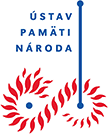Ivan Lefkovits (1937)

Biography
“Are you in this hell as well?”
Ivan Lefkovits was born in 1937 in Prešov. He and his whole family got to the last transport from Slovakia. His father was a highly regarded dentist and mother was a pharmacist, so they were so-called economically important Jews, thus they were granted a dispensation. However, it brought them into focus, so they weren’t able to do anything to save their skin. They tried to escape to Budapest but search for them was launched. When Ivan was only a little boy he had to spend five weeks in an institute for the deaf-and-dumb where he had to pretend being one of them. They got themselves christened but it was vain. His mother took him and his brother to orphanage what was relatively safe place for them, but his elder brother Pavol induced him to escape from there. At that time even his mother had to be in hiding. With his brother they got to another orphanage which was bombed out soon. Children left for Liptov to their acquaintance; however, neighbours recognized them shortly after their arrival. They had to hide again and live in uncertainty. In spite of the whole effort, they had ferreted out them and their way to death started. Firstly they experienced the hell of Auschwitz, then Ravensbrück and finally Bergen-Belsen. Every one of them was more and more terrified. Then Englishmen came to help and they also brought the first drinkable water to the camp.
“Economically Important Jews” – Saving or Covering-up
“Today I would say it was a pity that it happened because the chance to save our lives would have been much bigger if we hadn’t been granted the dispensation and if we had tried to escape earlier. On the contrary, it took many long months, years and months, during which a man tried to persuade himself that since we belonged to economically important Jews, we had to last it out somehow, we thought it would be good.”
Child’s Cleanness in Dirty World
“I told that customs or police officer, I told him: ‘You know, until now I have been a girl but as soon as I cross the border I will be boy again.’ And the customs officer closed the door and ordered others to go out and said to me: ‘Listen to me, if I were a bad guy, I would send you back right now.’”
Frightful Performing of Being “Deaf-and-Dumb”
“Certainly, there were many psychological things which I didn’t know and which had something to do with me, but it was really bad when Mr. Proper took me there and told me: ‘Ivanko, you will stay here and when you will go through the gate you mustn’t open your mouth, you must say nothing. All the people here are deaf-and-dumb and you aren’t. You will hear various things, but you have to pretend that you don’t hear at all.’ When you imagine that in 1944 I wasn’t seven-year-old child yet and I had to undergo situation like this, when I couldn’t ask “why and what” and suddenly I had to be speechless, it was really hard for me. Somehow I managed it and the only thing I know is that when those air attacks came, they took us to some cellar, how to express it, to bomb shelter. You know, when the first bombing started, I jumped up. Only then I realized that I mustn’t do that, so I adapted to the situation because all of them kept lying on the floor because of their deafness. Later I just repeated what others were doing.”
…And Yet She Heard Gestapo Saying: “We Are Looking for Mrs. Lefkovits”
“Sometime in the middle of September 1944, Mrs. Kissóczy, who was the wife of doctor Kissóczy, came to pharmacy and told my mom, that she wanted one packet of Aspirin. And my mom was very surprised that the wife of doctor, who had any medicaments at her disposal, came to pharmacy to buy some Aspirin. But she said: ‘Mrs. Lefkovits, get out, immediately.’ It meant that the story with Aspirin was only a cover-up for their conversation. ‘Get out right now, Gestapo is coming; they will be here in a couple of minutes.’ So my mom went to the back room, hanged up her white smock and said: ‘I will be back in a moment.’ And in the doorway… In the doorway she met Gestapo members coming in and yet she could hear: ‘We are looking for pharmacist, Mrs. Lefkovits.’ They wanted to arrest her.”
Last Days before Release
“The decline continued in that sense that there was a moment when German administration of the camp became aware that the end was drawing near. And they decided to do the most horrible thing they could do at all but I didn’t wonder. They left the camp closed, blew up the water main and went away. So we were left there without anything. There stayed about ten thousand people without anything to drink or eat. The most of them were dead, but those who were alive stayed without water there. After some time people realized that the camp wasn’t guarded anymore, there was no electricity in the fence, so they crawled through those barbed wires somehow and brought some food and potatoes. Some people had those potatoes frozen, it was in April 1944, I didn’t know, maybe they had them somewhere in the ground, in any case, all the potatoes were dirty and the most of people ate them peeled. But my mom and I, we were so weakened that we even didn’t think we could acquire some of those potatoes, it was impossible for us. Thus we stayed hungry, we had nothing. There was neither water, nor anything else; however, we could take jackets of those potatoes and at least we could suck the water or that liquid out of them.”
Huge Mounds of Corpses, Cannibalism
“When we went out, we saw all the corpses there and I saw them for the first time in my entire life and everyday there were even more and more of them. At first they partly cleared them away but later the corpses were lying everywhere, firstly there were some places indoors where they usually put them. Moreover, those who removed corpses, those people committed cannibalism, they gnawed bodies because it was at least something, even though there was almost no meat at the bones, it was dried out. It was absolutely horrible, I can’t and don’t want to describe it. I hadn’t seen cannibalism and I didn’t mind it. I remember all those mounds of corpses, really huge mounds which were totally everywhere. If you want to have a picture of it imagine a beach near the sea where there are a lot of people. But those people aren’t alive but dead and they are lying not only side by side but also crosswise. That was the labour camp.”
Suspicionless Englishmen
“But the fact was that when the first jeep with Englishmen went through the gate, they had no suspicion what was awaiting them there. They weren’t prepared to see that entire situation; however, they had to get some tanker and hosepipes to connect it. Water had already been there, but it took them about forty-eight hours to bring the water inside and connect it somehow. When they finally managed it, the first twenty minutes, the first twenty minutes were really frightful because the fight for water started there. Fortunately people soon realized that there was enough water for everyone, thus it was useless to fight. But I have to confess that my mother became involved as well because she wanted to bring a glass of water to me.”
The story and videoclips of this witness were put together and published thanks to the financial support of EU within the programme Europe for Citizens – Active European Remembrance.

